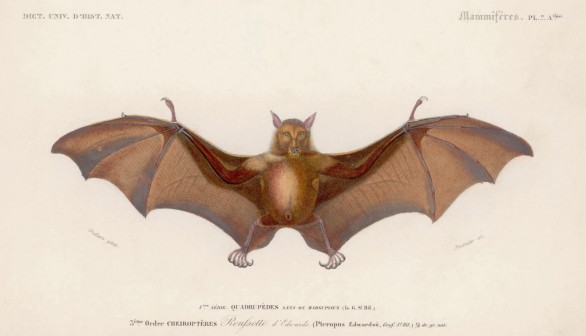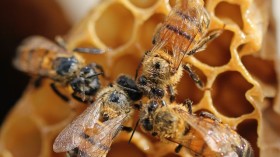foraging
-

Prey Availability Determines the Foraging Effort of Bats, Researchers Discover
While some wildlife species thrive well in cities, it's harder for large, insectivorous bat species to find enough food. To get their fill, city-dwelling common noctules (Nyctalus noctula) have to hunt longer than their rural counterparts and yet they catch fewer insects. While rural bats hunt together, their urban counterparts regularly forage alone. These findings, published in the journal Global Change Biology, are the results of a new investigation led by PD Dr. Christian Voigt and Dr. Laura Stidsholt from the Leibniz Institute for Zoo and Wildlife Research (Leibniz-IZW).
Latest Research Articles
-

Gray Whales Forage Seafloor in Oregon, Consume 21 Million Microparticles a Day
-
Flower Foraging Dooms Mosquitoes as Nectar Spreads Honey Bee Virus to Bloodsuckers
-

Feathers of Wandering Albatross Can Reveal Information About Their Long-distance Foraging
-

Social Bees Travel Greater Distances for Food than Their Solitary Counterparts





